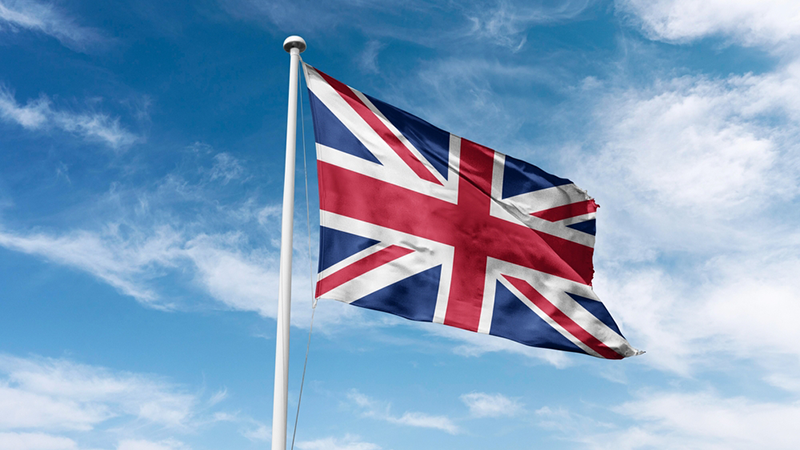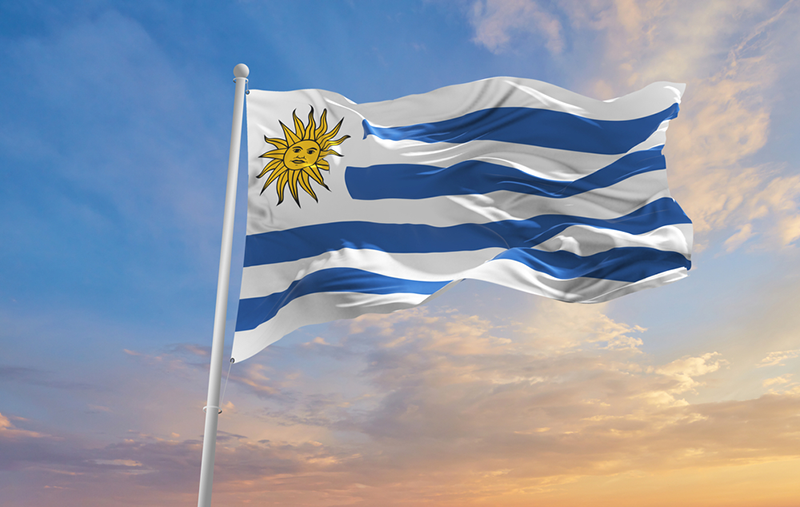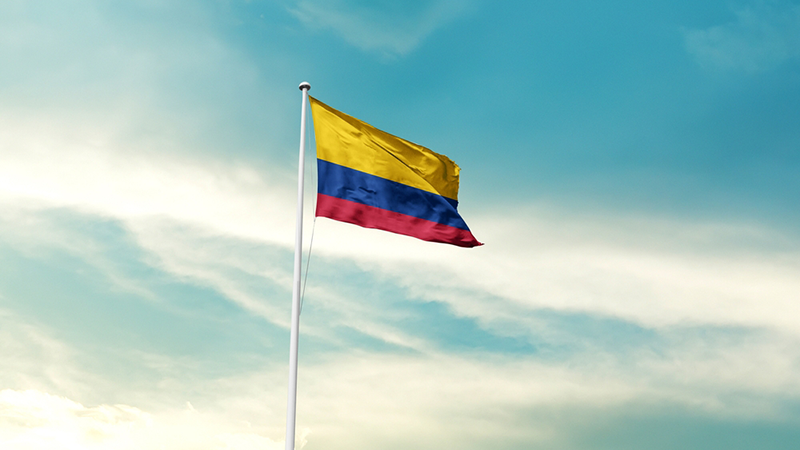Doing Business in the UK
The UK remains one of the most influential economies in the world, offering strong institutional stability, deep capital markets, and a strategic...

Doing business in Brazil offers significant opportunities, but navigating the country's complex business regulations requires careful planning, its major business hubs such as São Paulo and Rio de Janeiro. From understanding tax requirements to dealing with government agencies, companies must be prepared to manage every step of the entire process.
Building strong relationships with trusted financial institutions is also essential to ensure smooth banking operations and access to capital. In addition, gaining a deep understanding of the local environment, including cultural, legal, and economic factors, is key to long-term success in the Brazilian market.
At H&CO, we provide end-to-end solutions to help businesses successfully establish themselves in Brazil. Whether you need entity formation, human capital, global technology support, accounting, payroll management, tax compliance, or international trade guidance, we can help.
Contents of this blog:
Challenges | Opportunities | Why Start a Business | Brazilian Economy | International Taxation | Brazilian Business Culture | Brazil Local Insights
-1.webp?width=222&height=525&name=guia%20DB%20brasil-32%20(1)-1.webp) Complex Tax System
Complex Tax System Brazil's tax system is known for its complexity, with multiple federal, state, and local taxes. The complexities of Brazil’s tax system, including multiple cascading taxes and disputes among states, create challenges for companies operating and exporting in Brazil, even for those with experience.
Navigating Brazil's regulatory framework can be a daunting task. Businesses must comply with a large number of regulations, which can vary significantly between states. Always contact professionals who are knowledgeable about the country's regulatory framework.
Brazil has stringent labor laws that can be challenging for foreign companies to navigate. These laws often favor employees and can lead to high costs and legal complexities.
Companies start by defining job roles and requirements. They use various channels like job portals, social media, and staffing agencies to advertise positions. The most common type of employment contract in Brazil is governed by the CLT, which provides comprehensive labor rights, including benefits like paid vacations, health insurance, and severance pay.
While Brazil has made progress, infrastructure challenges like transportation and logistics remain significant in certain cities. It is essential to have local expertise when establishing a headquarters in the area to effectively plan your strategy.
Brazil offers a wealth of opportunities for businesses across various sectors. Here are some of the most promising areas:
Brazil is a global leader in renewable energy, particularly in hydropower. There are also significant opportunities in solar and wind energy, driven by the country's commitment to increasing its renewable energy capacity.
As one of the world's largest producers of coffee, soybeans, sugarcane, and beef, Brazil's agricultural sector offers vast opportunities for investment and innovation.
Brazil's tech sector is growing rapidly with opportunities in software development, fintech, and e-commerce. The country's large and young population is driving demand for digital solutions.
Brazil’s key sectors in the digital economy include artificial intelligence (AI), cybersecurity, the Internet of Things (IoT), edge computing, cloud services, and digital government, particularly in developing a trusted and inclusive digital public infrastructure (DPI).
Brazil has the largest consumer market in South America, providing a significant opportunity for businesses looking to expand their customer base.
Brazil has a diversified economy with strong agriculture, mining, manufacturing and services sectors. It is also rich in natural resources, making it a key player in global trade in these products.
Starting a business in Brazil can be very rewarding due to the country's large population, which encourages high consumption. The Brazilian government offers various incentives to attract foreign investment, such as tax benefits, subsidies, and grants for businesses operating in specific sectors or regions. This country is part of several trade agreements, including MERCOSUR, which facilitates trade with other member countries.
The tax treaties that Brazil currently has in force to avoid double taxation include those with Uruguay, Peru, Argentina, Chile, Canada, Germany, among many others.
-1.webp?width=199&height=471&name=guia%20DB%20brasil-31%20(1)-1.webp)
Brazil's GDP growth has shown resilience and positive momentum. For 2024, the GDP growth projection has been revised upwards to 3.2%, reflecting better-than-expected performance in the first half of the years. However, growth is expected to moderate to 2.2% in 2025 due to anticipated reductions in fiscal stimulus and global economic conditions.
Inflation in Brazil has been a significant concern. The annual inflation rate for 2024 ended at 4.83%, exceeding the government's target limit of 3%.
Brazil's business environment is characterized by a complex tax system and regulatory challenges. The recent tax reform, approved in December 2023, aims to simplify the tax structure by introducing a dual Value-Added Tax (VAT) system. Additionally, new transfer pricing regulations have been enacted to reduce double taxation on multinational firms.
Brazil's primary law regulating foreign investment is the Foreign Direct Investment Law. This law governs the inflow and outflow of foreign capital and ensures that foreign investors receive the same treatment as domestic investors.
The Brazilian Trade and Investment Promotion Agency (Apex-Brasil) plays a crucial role in attracting foreign investments by providing support and information to potential investors. Brazil offers various tax incentives to foreign investors, including reductions in import duties and tax exemptions for specific sectors.
Brazil offers several types of business entities, each with its own legal and operational characteristics.
Brazil's financial system faces challenges from economic volatility and external shocks. Brazil is home to some of the largest and most valuable banking brands in the region, including Itaú Unibanco, Banco do Brasil, Banco Bradesco, and Caixa Econômica Federal.
In Brazil, the Profit Sharing Program, known as Participação nos Lucros e Resultados (PLR), is a popular way for companies to incentivize employees by sharing a portion of the company's profits.
Law 10,101/2000: This law governs the implementation of profit-sharing programs in Brazil. It requires that the program be established through a formal agreement between the company and its employees or their representatives.
Brazil's emphasis on technology and the implementation of solutions like SAP Business One are propelling the digital transformation of the business landscape. If you have any specific questions or need more detailed information about a particular aspect, feel free to ask our experts!
Regarding taxation, it should be noted that a new system will be implemented starting in 2026.
Corporate Income Tax (IRPJ): The corporate income tax rate in Brazil is 15% on annual taxable income. Additionally, there is a surcharge of 10% on annual taxable income exceeding R$240,000.
Value-Added Tax (IVA): Brazil's VAT system is complex and includes several types of taxes:
Tax Incentives: Brazil offers various tax incentives to attract investment and stimulate economic growth:
Brazilian importers must register with the Foreign Trade Secretariat (SECEX) via the Integrated System for Foreign Trade (Siscomex). Depending on the product, additional documentation may be required.
Brazil's main exports include soybeans, crude petroleum, iron ore, raw sugar, and corn. The primary export destinations are China, the United States, Argentina, the Netherlands, and Chile.
Brazil is currently involved in various trade agreements. One of them is the Mercosur-EU agreement, which is still awaiting ratification. Additionally, Brazil has an FTA with Egypt that has been in effect since 2017, and recently concluded a free trade agreement with Singapore in 2023. Brazil is also engaged in ongoing negotiations with countries such as Canada, South Korea, and India. Although there is no comprehensive FTA with the USA, Brazil and the USA collaborate through the Agreement on Trade and Economic Cooperation (ATEC) to strengthen their trade and investment relations.
Foreign investors looking to establish themselves in Brazil can apply for the Investor Visa, also known as the VIPER (Visa Permanente para Investidores). This visa allows foreign nationals to gain permanent residency by making a qualifying investment in Brazil.
If you have a better understanding of Brazilian business culture, you can greatly improve your success when operating in Brazil. Here are some essentials and practical tips:
In Brazil, business is highly relationship-oriented. Establishing trust and rapport is crucial. Initial meetings often focus more on personal connections than on discussing business matters.
Greeting: Handshakes are common; for women, a light kiss on the cheek (or two) might occur after familiarity is established.
Formality: Brazilians value a mix of formality and warmth. Usually, people are called by their first name without “Mr.” and “Ms.” even at their first meetings or round tables.
Punctuality: Being on time is polite but meetings may not always start on time. Allow for flexibility.
Business Hours: Most offices operate from 9 AM to 6 PM with a break for lunch.
Holidays and Festivities: Be mindful of major holidays, like Carnaval, which can affect business operations. Visit on a day off: Parque do Povo, Sao Paulo Zoo, Ipiranga Museum, Art Gallery, a Soccer game (Morumbi or Allianza Park stadiums are close to downtown), Farol Santander Building, Terraço Italia, Unique Hotel rooftop, or Lunch at Pinheiros or Vila Madalena neighborhood for more alternative options.
Information about Museums: You can check the TripAdvisor website to see all of them. Diverse Food Scene: Brazil hosts one of the largest Japanese descent communities outside Japan. Also, fusion cuisine and Brazilian barbecue are very popular as well.
Weather: São Paulo has a subtropical climate, and although average temperatures are around 20 degrees Celsius (68°F) most of the year, in the winter months (July, August and September) they can reach 15 degrees Celsius.
São Paulo is notorious for its traffic. Plan your commute carefully and allow extra time.
Ride-Sharing: Apps like Uber are popular among business travelers. It is advisable to choose a driver who has completed a decent number of trips and has a high rating. "Uber Black" is often the best option since it typically features well-maintained vehicles.
Public Transport: For beginners, using buses, metros, or trains is not recommended. These modes of transport can be complicated for newcomers, and there is a higher risk of encountering pickpockets.
Bureaucracy in Brazil is known for its complex tax and legal systems, making it advisable to consult local experts or accountants.
Exchange Rates: Currency exchange rates can fluctuate, so you should pay attention to them if you plan to budget in foreign currency. Using a prepaid card is recommended as a good option to avoid carrying banknotes; however, if you need physical banknotes, most shopping malls have exchange offices where you can safely access cash.
Directness: Brazilians are expressive and may use gestures while speaking. Discussions can be lively but are rarely confrontational.
Emails: Maintain a professional yet friendly tone in emails. For quick communication, phone calls and WhatsApp are often preferred.
These are some hotels near the financial district: Itaim Bibi, Vila Olimpia, Moema, Vila Nova Conceição, Jardins, and Jardin Paulistano are some of the best regions to stay for business meetings since most of the corporate headquarters are located around Faria Lima.
Figueira Rubaiyat (steakhouse, Maní (Brazilian modern food), Due Couchi - Italian food (Shopping Cidade Jardim), Fazenda Churrascada, Myk (Greek Food), Banzeiro (Brazilian/Amazon region modern cuisine), Imakay (Asian cuisine), Nakka (Japanese), Fogo de Chão (steakhouse) , Barbacoa (steakhouse
If you are looking for an informal meeting with a relaxed drink, we recommend visiting Skye, Banana Café, Moeda (in the basement of Farol Santander), Terraço Itália, Tatu Bola, Boteco São Paulo, Subastor, Seen, Dhomus, Coco Bambu, Vaca Veia, and Candem House.
There are 71 diplomatic missions based in the city of Sao Paulo. You can see at https://embassies.net/brazil/sao-paulo

The UK remains one of the most influential economies in the world, offering strong institutional stability, deep capital markets, and a strategic...

Doing business in Uruguay represents a strategic opportunity for companies and entrepreneurs seeking to expand in Latin America and connect with the...

Colombia is the third most populous country in Latin America, with a population exceeding 50 million inhabitants. The population is relatively young,...